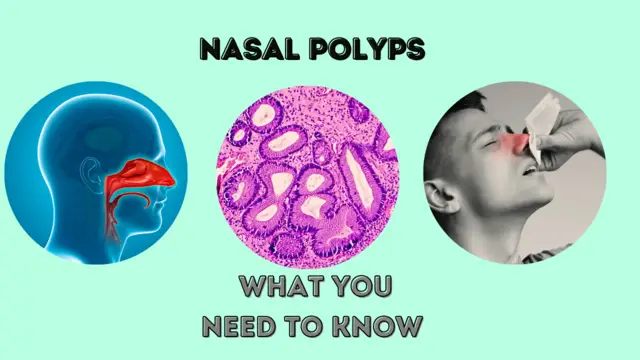Nasal polyps, while benign, can significantly impact one’s daily life due to discomfort and impaired nasal function. Understanding these growths, their diagnosis, and available treatments is crucial for effective management. Let’s delve deeper into what nasal polyps entail and how to address them appropriately.
Understanding Nasal Polyps
Nasal polyps are soft, painless growths that form in the nasal passages or sinuses, often resembling grape-like clusters of tissue. Their presence can lead to symptoms such as persistent nasal congestion or runny nose, reduced sense of smell, and facial pressure. These symptoms can vary in severity and may affect an individual’s quality of life.
Diagnosis
To diagnose nasal polyps, a healthcare provider conducts a comprehensive assessment, which typically includes the following key diagnostic methods:
- Nasal Endoscopy: This involves inserting a narrow tube with a light or camera into the nasal passages to examine the extent of polyp growth.
- Imaging Studies: Techniques like CT or MRI scans provide detailed images to visualize the size and location of nasal polyps.
- Allergy Tests: Identifying underlying allergies through skin or blood tests is essential, as allergies can contribute to the development or exacerbation of nasal polyps.
- Cystic Fibrosis Screening: As nasal polyps may be associated with cystic fibrosis, screening for this condition may be recommended.
Treatment Options
Various treatment options are available to manage nasal polyps, including:
- Medications: Nasal steroids, both in spray form (e.g., fluticasone, budesonide) and oral form (e.g., prednisone), are commonly prescribed to reduce inflammation and shrink polyps. Biologic medicines such as dupilumab, mepolizumab, and omalizumab may be used for chronic sinusitis with nasal polyps. Other medications like antihistamines and antibiotics may also be employed to manage inflammation and allergies.
- Aspirin Desensitization: For individuals with aspirin sensitivity, gradual exposure to aspirin under medical supervision may be beneficial.
- Surgery: Endoscopic sinus surgery is considered when medications fail to provide relief. The goal of surgery is to remove polyps, improve symptoms, restore airflow, and prevent recurrence.
Coping Strategies and Self-Care
Managing nasal polyps involves adopting various coping strategies and self-care measures, including:
- Regular Follow-Up: Scheduled check-ups with healthcare providers are essential to monitor progress and adjust treatment plans.
- Lifestyle Modifications: Identifying and avoiding triggers such as allergens can help manage symptoms. Additionally, maintaining good nasal hygiene is crucial.
- Humidification: Using a humidifier at home can alleviate nasal dryness and improve comfort.
- Breathing Exercises: Learning and practicing breathing techniques can enhance nasal airflow and alleviate congestion.
- Stay Informed: Continuously educate yourself about nasal polyps and stay updated on available treatment options to make informed decisions regarding your health.
In conclusion, nasal polyps necessitate individualized care and a collaborative approach with healthcare professionals. If you experience persistent nasal symptoms or suspect nasal polyps, seek medical advice promptly to initiate appropriate management strategies tailored to your needs.


